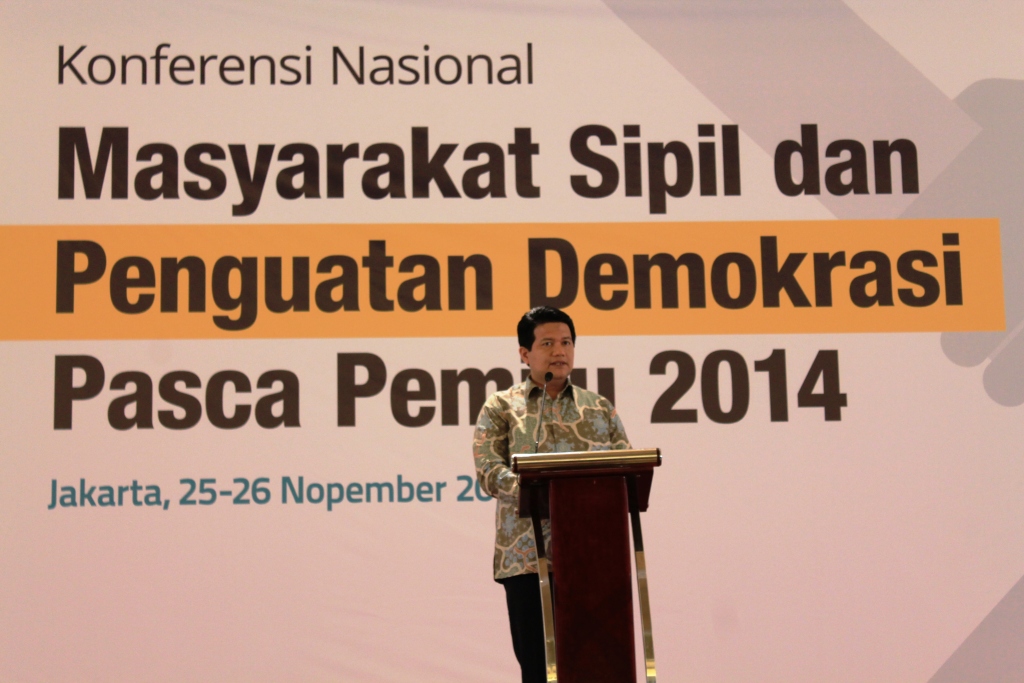Jakarta, Kebebasaninformasi.org – A number of civil society organizations conducted National Conference to discuss the post-electoral democracy, on Tuesday (November 25th, 2014). The activities discussed the important issues related to the sustainability of democracy in Indonesia. A number of experts and officials participated in activities which carried out by the Indonesian Corruption Watch (ICW), Indonesian Parliamentary Center (IPC), JPPR, Puskapol UI, Perludem, Yappika, and a number of other community organizations.
More than 150 people from various civil society organizations participated in the event. In his opening speech, the Chairman of the General Election Commission, Husni Kamil Manik stated that the role of civil society in creating a democratic life is very important.
Husni said, one form of the success of 2014 election implementation is the work openness by the Commission. For the first time in an open-list proportional system, Election Commission published a legislative candidate profiles to the public. From this candidate profile, community can be involved to monitor the track record of candidates before being selected.
“People along with the Election Commission made an application. From the campus was born the profile or CV from the candidates. Then the public will judge and criticize,” said Husni.
According to Husni, democratic election is one of the demands of the Reformation. “Reform Movement, the moves which also made by society,” he said.
Husni continued, the consequences of democratic election are the presence of an independent election management bodies. Then the Commission which has independency has been formed as election management bodies.

